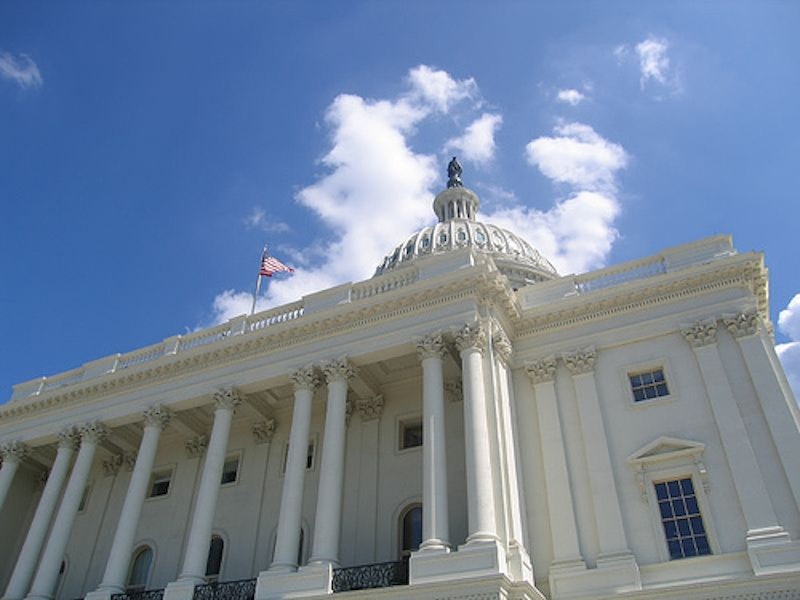The recent back and forth, they-said-we-said between the CIA and Congress over unknown classified intelligence programs is another example of a Congress that simply flounders from one issue to the next. Marc Ambinder of The Atlantic gamely summarized the situation (emphasis mine):
Because the executive branch retains a stranglehold on regulations about the disclosure of classified information, there are very few ways for member of Congress who learn about objectionable, classified programs to reveal their discomfort. They can write a classified letter. They can risk prosecution by revealing the information publicly. Or they can do what a gaggle of House Democrats did yesterday: band together, suggest that the CIA misled them about a specific program, and wait for journalists to uncover the details.
The image that last sentence conjures isn’t a good one: a bunch of House Democrats in phalanx formation grimly waiting reinforcements, or vindication, or the passing of another celebrity. Between Congress and our nation’s governors, one would be hard pressed to explain away the shit-show that is our elected populace.
After a spike in September of 2001, Congress’s approval rating has dropped precipitously, lingering at 14 percent at the end of 2008 before shooting to 33 percent with the turnover of administrations. Looking at Gallup’s twitching graph, I can’t help but wonder at most of the Reagan and some of the Clinton years, where it wasn’t insane to think of Congress with a 40 percent national approval rating—a Congress that almost clocked in at .500.
When Harper’s ran a cover story titled “Barack Hoover Obama,” the magazine dropped a less than subtle comparison of the Great Depression to today’s economic crisis, pitting Hoover’s well-intentioned mishandling against FDR’s dogged mastery. This Congress, President Obama’s first, is chest-deep in Important Legislation: health care, Waxman-Markley, EFCA—hell, a question regarding whether or not this country needs a second stimulus package made it to House Speaker Nancy Pelosi the other day. This confluence of legislative priorities, rising unemployment, the very real prospect of a jobless recovery, a question mark over Iran, and the exit from Iraq is the genetic make-up of President Obama’s “moment.” He either breaks right into greatness or descends into infamy.
And yet that has been the impression of Obama for over two years now. What started as star-eyed adoration from the young snowballed into respect—first grudging, then steadfast—from the old. When the financial sector melted down last fall, the electorate watched as John McCain flailed and Obama kept calm. That sealed it: The man is Presidential, he will do well by us.
Since Inauguration, President Obama’s legislative agenda (and its progress) bears Congress’ signature mark of bloated delay because he has left the finding of brass tacks in their care. It is this passive approach—at least, passive in the eyes of a good swath of the liberal blogosphere—that’s predicating the “Hoover” label from Harper’s.
While no one expects Congress to say “How high?” when Obama says “Jump” (and even if that did happen, after a brief moment of bipartisanship the exact measurements would be broken down into several subcommittees full of backbencher House members who would hold the legislation hostage for a few pork projects and an amendment that either formally declares the U.S. a socialist state or formally grants the secession of Alaska and Texas from the Union), the public has come to expect the Executive Branch to the lead on all things.
Vice President Cheney oversaw an unprecedented consolidation of power in the White House over issues of national security and intelligence, and President Bush was able to whip Congress into prolonging the Iraq War by pumping yet more and more money into it without any formulation of an exit strategy. The Bush Administration left behind a legacy of failed ideology, one that numbed our expectation of the executive branch—and, concurrently, executive authority.
In 1917, New Republic founding father Walter Lippmann wrote, “Only the most revolutionary changes in the congressional system can save representative government in America.” As for the Presidency:
The concentration of all vitality in the Presidency has become something like a disease in which there is feverish activity at the center, a cold inertia in all the parts. We expect of one man that he shall speak for the nation, formulate its needs, translate them into a program. We expect that man to instill these purposes and this program into a parasitic party system, drive his own party to enact them, and create an untainted administrative hierarchy though which to realize his plans. […] The President is burdened with the task of a benevolent despot and then denied the authority and resources to even make a despotism effective.
While the President is not nearly as cynical as Lippmann, I fear a Congress that, while not so much parasitic, is so fearful of being attached to any of Obama’s failures that it misses every opportunity to be a part of his successes. And in doing so—in avoiding the big answers to the big questions at the end of the day, in wondering whether history will break for or against Obama—we must all accept a diluted politics.
Defining Government Down
As long as Obama keeps entrusting a cowardly Congress with the big decisions, we should get ready for increased cynicism and ineffectiveness.

Photo by Will Palmer
